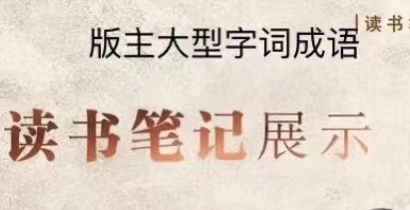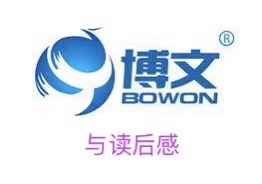In the two years, from 1990 to 1992, when I worked in Pengda, I had no feeling, as if Pengda was not the school I worked in. If I had classes, I went to the classroom and when the class was over I went home all at once because of no office hours. Two afternoons each week, we had to stay in the office, performing political study or professional activity, without deep communication with each other. I didn’t care anything about what had happened in the university or in the department. I liked such a status, without any outer interference, peace and quiet and I had a very good mood and feeling.
About in May or June of 1993, a group of old cadres retired from the leading post and I became the Head of the English Teaching and Research Section (ETRS). At the same time, I was asked to hold the position of the Party secretary, in charge of the students of the Management Department. I liked the first duty and had no interest in the second post at all. As head of the ETRS, I would manage English teaching of the whole university, which was about the English specialty. The student work, I thought, would take me a lot of time and nag away at me. I made my mind not to accept the position. Finally, I was appointed vice head of the Department. The head and Party secretary were placed on the shoulder of one person, who used to be the department head.
I began to do something about the English teaching in the whole school. I believed that the students in such a vocational university remained poor in essential English skills, for whom it was unnecessary to get touch with the vocational English so early. They should continue to study the Basic English, enlarge vocabularies, and improve their reading ability of common English. As for the vocational English, they could teach themselves in later days when it was required. The freshmen and sophomores of the undergraduate colleges and universities were continuing to study basic English, let alone those in junior colleges. What I thought was supported by the president in charge of teaching, who was a man in favor for common knowledge rather than specialty. Soon we decided to use the Core English edited by Shanghai Jiaotong University, published by the High Education Press. “Core” meant core of the English language used by varieties of businesses, i.e. basic English. Undergraduates were better in English than those in junior colleges and every week they had 4 periods and some periods for listening in addition in a semester. In contrast the students of the junior college had only 3 periods every week, not being in the same category. But the students in some majors, such as majoring in the international trade, just established in Pengda, could follow the undergraduates and would be required to take part in the National College English Test (NCET). Then according to the general level of the whole class in the CET we decided the graduate score line. Among the students in other majors, some showed great interest in English and would be willing to attend the NCET. Those who passed the test could acquire the English Band Four Certificate, which added to weight in obtaining employment.
The two things I must do were as follows: First, Pengda must be qualified to have examination rooms, which meant we had to apply for the qualification. Second, we must establish listening courses, which required some equipment and became a matter of great urgency. I went to Nanjing, the capital of our province, to the teaching affairs section of the provincial education office, delivering the application. Then I went to Southeast University to ask the information of the listening equipment.
Approved by the president in charge of teaching, I employed the persons from the Southeast University to come to construct audio equipment in the classroom of the international trade and asked the students to buy earphones. This equipment didn’t cost much and the effect was not good. It was not long before a director of a teaching equipment factory came to my office to sell earphones, who said that he got the information from the teaching affairs section of the provincial education office that Pengda also had NCET rooms. His factory specialized in the audio equipment and the quality of their products was secured, with reasonable price. Immediately I applied for a sum of money according to the quotation and asked the factory to begin the process of construction. The two teaching buildings were soon equipped with audio lines and the audio equipments were placed in a special room, named the audio room.
This set of equipments were mainly used for CET (College English Test) Band Four and Band Six. During the test, the students brought their own earphones with them and one teacher played the magnetic tape in the audio room. As a result, each invigilator didn’t need to bring a recorder into the classroom and play the tape for the examinees. Our teaching and research section organized a class, coaching some of the students other than those majoring in the international trade. I taught the students majoring in the economy and finance, who were the most active in entering themselves for Band 4 Examination. The number of the students who passed the examination was also higher than that of the students majoring in other specialties. Those who had passed the examination encouraged other students to study English hard. Later, we organize those who had passed Band Four to attend Band 6 Examination. Those who were outstanding in English obtained the certificates of CET Band 6, some of whom later took part in the examination for the junior students to transfer into the senior colleges or the graduate enrollment examination. For example, Ting Meng, who used to be a student of the international trade class of 1993, became a graduate student of the Nanjing University of Aeronautics and Aerospace and Hong Liu, who majored in the same specialty as Ting Meng but in the 1994 class, became a student of the school of foreign language study of Nanjing University. Later she came back and became a teacher of our department.
I had chance to attend the national teaching and research conference because we used Core English as our teaching material. Once in Beijing, I had a meal with the head of the High Education Press(HEP), who never put on the airs, and got to know him. The dean of the department of the foreign language of the Southeast University delivered a speech, introducing their measures to promote the English study and teaching. After the meeting I found him and communicated with him. The two persons had a good effect on my scholarly research.
Nov. 2 of 2010 in Xuzhou
Proofreading on Feb. 29, 2012 in Chicago
Uploading on Aug. 6, 2023 in Xuzhou









